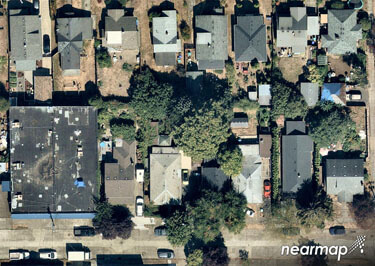UP TO THE MINUTE
Tips for completing and filing OSHA 300 logs

By Cotney Consulting Group.
Avoid common mistakes by updating forms promptly, correctly categorizing establishments and following OSHA’s criteria for recordable incidents.
Maintaining accurate and up-to-date OSHA 300 logs is critical for roofing contractors. These logs ensure compliance with safety regulations and affect your eligibility to bid on projects and your likelihood of undergoing an OSHA inspection. While the form is only a few pages long, the associated regulations and letters of interpretation make the process more complex. Here’s a guide to help you navigate common mistakes and maintain accurate records.
Importance of accurate OSHA 300 logs
OSHA 300 logs track workplace injuries and illnesses, providing a snapshot of a company’s safety record. General contractors often use DART (Days Away, Restricted or Transferred) rates and incident rates to determine project bidding eligibility. Inaccurate logs can disqualify your company from bidding and increase the chances of an OSHA inspection due to higher reported injury rates.
Common mistakes and how to avoid them
1 - Not updating OSHA 301 and 300 forms promptly
Issue: Failure to update forms within seven calendar days of a recordable injury.
Solution: Document the incident on form 301 and update form 300 immediately with your information. Ensure your log is ready for inspection within four hours of an OSHA request. Don’t wait until January to complete your forms.
2 - Not separating business locations and employee groups by establishment
Issue: Failing to separate logs for different locations or employee groups.
Solution: Treat projects and work locations lasting over a year as separate establishments. Maintain separate logs for each location with more than ten employees. If multiple buildings at the same address perform different operations under separate NAICS or SIC codes, treat each building as a separate establishment.
3 - Not updating 300 forms when mistakes are discovered
Issue: Delays in correcting errors can lead to issues during inspections.
Solution: Correct logs when new information becomes available to avoid delays and complications.
4 - Recording non-recordable injuries and illnesses
Issue: Including first aid-only injuries that do not meet OSHA’s recordable criteria.
Solution: Only record injuries that meet OSHA’s criteria for recordable incidents. For example, first aid treatments such as using non-prescription medication, bandages or hot/cold therapy should not be recorded on the 300 log.
5 - Not recording work-related injuries at home or business events
Issue: Overlooking injuries that occur while employees work from home or attend offsite business events.
Solution: Record these injuries if they are work-related and meet OSHA’s criteria.
6 - Incorrect signatures on the form
Issue: Forms not signed by a “company executive.”
Solution: Ensure that a company officer or an individual with an ownership stake signs the form, not just a branch or safety manager.
7 - Not posting logs for the required period
Issue: Failing to post OSHA 300a logs annually from February 1 through April 30.
Solution: Adhere to the required posting period to remain compliant.
8 - Not submitting data electronically using the ITA system
Issue: Missing the deadline for electronic submission of 300a summary data which is March 2.
Solution: Submit summary data for companies with more than 250 employees or those in high-hazard industries with 20-249 employees using OSHA’s Injury Tracking Application.
9 - New requirement for submitting form 301 electronically in 2024
Issue: Companies with more than 100 employees in high-hazard industries must submit form 301 electronically. Roofing is considered a high-hazard industry.
Solution: Check if your business meets the criteria and submit form 301 using the ITA system.
10 - Not using the company’s legal name for submissions
Issue: Submitting logs under a DBA (Doing Business As) instead of the legal company name.
Solution: Use the legal company name consistently to ensure records are correctly attributed and avoid submission issues.
Frequently asked questions
Why is OSHA collecting additional data?
OSHA collects electronic data to interact meaningfully with self-reporting establishments, including enforcement and outreach. The data helps OSHA analyze injury trends, identify high-risk industries and develop targeted safety measures. Public access to establishment-specific data allows employees, potential employees, customers and the general public to make informed decisions.
What about employee personal data?
OSHA takes steps to protect the personal information of injured workers. They do not collect names or addresses, convert birthdates to age and use automated technology to remove direct identifiers. Employers are reminded not to submit personal information and OSHA ensures that sensitive details like gender, hire date and hospital treatment are not published.
Accurately completing and filing OSHA 300 logs is essential for roofing contractors to maintain compliance, ensure eligibility for project bids and minimize the risk of inspections. Avoid common mistakes by updating forms promptly, correctly categorizing establishments and following OSHA’s criteria for recordable incidents. Regularly review and correct logs, ensure proper signatures and meet electronic submission deadlines. Adhering to these practices can protect your business and contribute to a safer working environment.
For more detailed guidance on completing OSHA 300 logs, visit the OSHA website: OSHA Recordkeeping FAQ.
Learn more about Cotney Consulting Group in their Coffee Shop Directory or visit www.cotneyconsulting.com.


















Comments
Leave a Reply
Have an account? Login to leave a comment!
Sign In